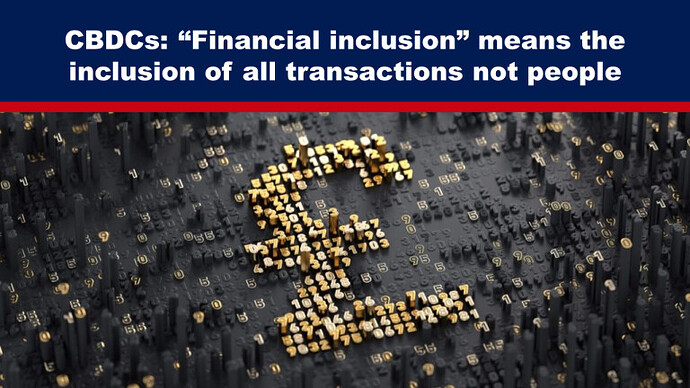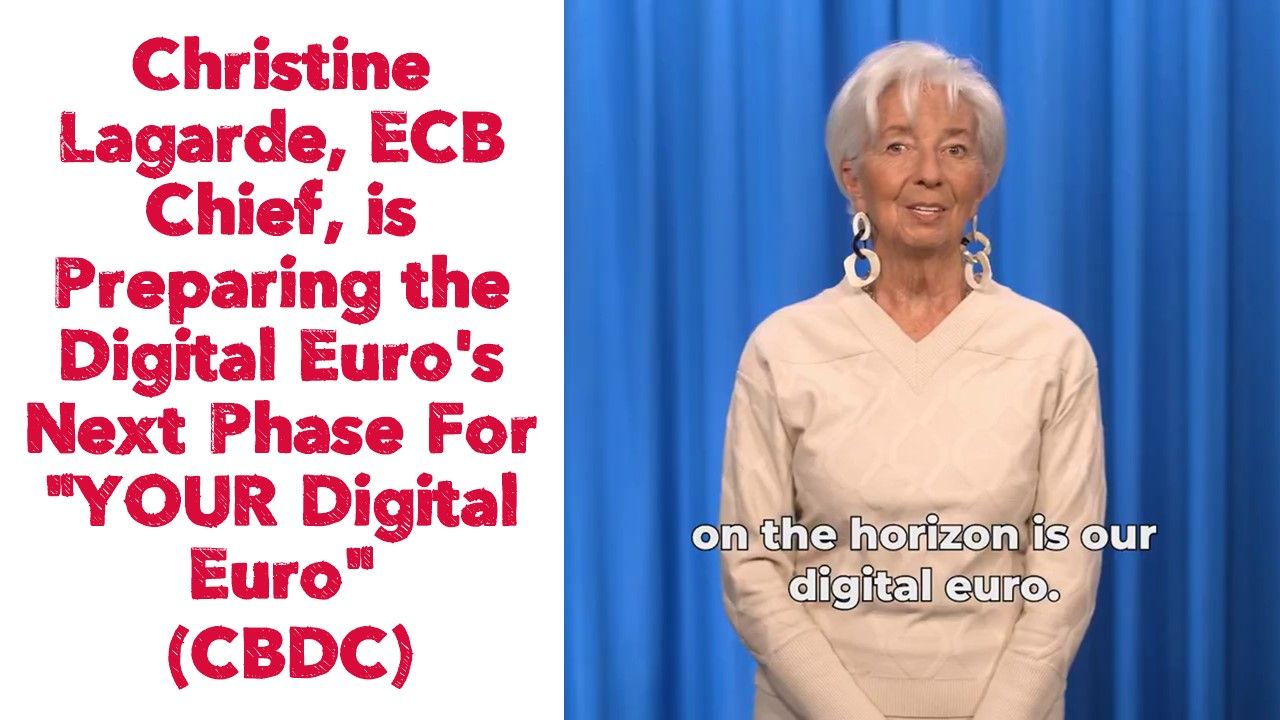CBDCs: “Financial inclusion” means the inclusion of all transactions not people
By Rhoda Wilson on April 27, 2024
To try to make central bank digital currencies sound benign, proponents repeatedly use the word “financial inclusion.” They are trying to convince us that the world needs CBDCs so that those who are “unbanked” can participate in the digital economy without requiring a bank account.
This is, of course, absurd, David McGrogan writes. “People who are financially excluded are in that position either because they want to be or – more likely – because they have no choice. A CBDC is a remedy for neither of those things. Indeed, if anything, it is a recipe for deepening financial exclusion.” Baby, It’s Cold Outside (the central bank’s core ledger)
By David McGrogan
“Central banks are understandably concerned that people who prefer to use physical cash may be left out in the cold.” – The Digital Pound Foundation
Central bankers are not well known for their insights into human psychology. When one reads the kind of material they put out, one rather gets the impression that they have been written by a race of aliens (are central bankers from Mars, or Venus?) trying to figure out exactly what it is that makes humans tick.
One sees this most clearly in the arguments which they tend to make when advocating for their shiny new toy, the Central Bank Digital Currency or CBDC (which I have written extensively about, in the UK context, HERE, HERE, HERE and elsewhere). These people are by no means fools, and they can discern that selling a CBDC to Earthlings – though they tend to put this in the mealy-mouthed language of “gaining public trust” – is going to be hard. Ordinary people, bluntly, don’t want it, and CBDC enthusiasts are painfully aware of this.
It is, though, a sign of the times that what ordinary people want, or don’t want, is not generally considered to be a relevant factor in decisions about policy. What the technocrat wants is good by definition, because it is the product of his expertise; the only relevant question to ask is how implementation should take place. Since the implementation of a CBDC is thought to need widespread adoption, then people will be made to adopt it. Hence, we see an awful lot of emphasis in the CBDC literature on the question of how it is that people will be cajoled, nudged, persuaded, hoodwinked, or coerced into adoption – given that it must, self-evidently, ultimately be in their best interests.
A phrase that keeps repeating itself within this discourse is, therefore, “financial inclusion.” The notion here, as it is always described, is that there are a large number of people in the world who are “unbanked” or who only really currently use cash, and that this results in them being excluded from the financial system at large. (Proportions obviously vary from country to country; you see different figures for the UK, but the Financial Conduct Authority reckons it’s around 3.9 million adults). It would be good to get these people “included,” the reasoning goes, and wouldn’t a CBDC be a brilliant wheeze for achieving that? Hence:
A digital pound could provide a secure and accessible means of payment to individuals who may not have access to traditional banking services. It could enable more people to participate in the digital economy without a bank account.
This is, of course, absurd. I hope you realise why it is absurd, but to spell it out: people who are financially excluded are in that position either because they want to be (they don’t trust the mainstream financial system) or – more likely – because they have no choice (due to where they live; due to living in poverty; due to lack of capacity, etc.). A CBDC is a remedy for neither of those things. Indeed, if anything, it is a recipe for deepening financial exclusion, as the UK House of Lords noted in their generally excellent report on the subject:
Continued at link...





